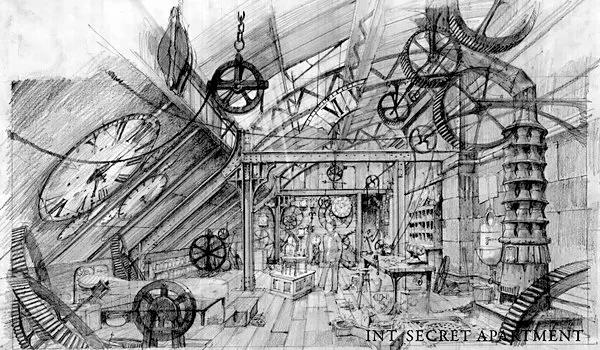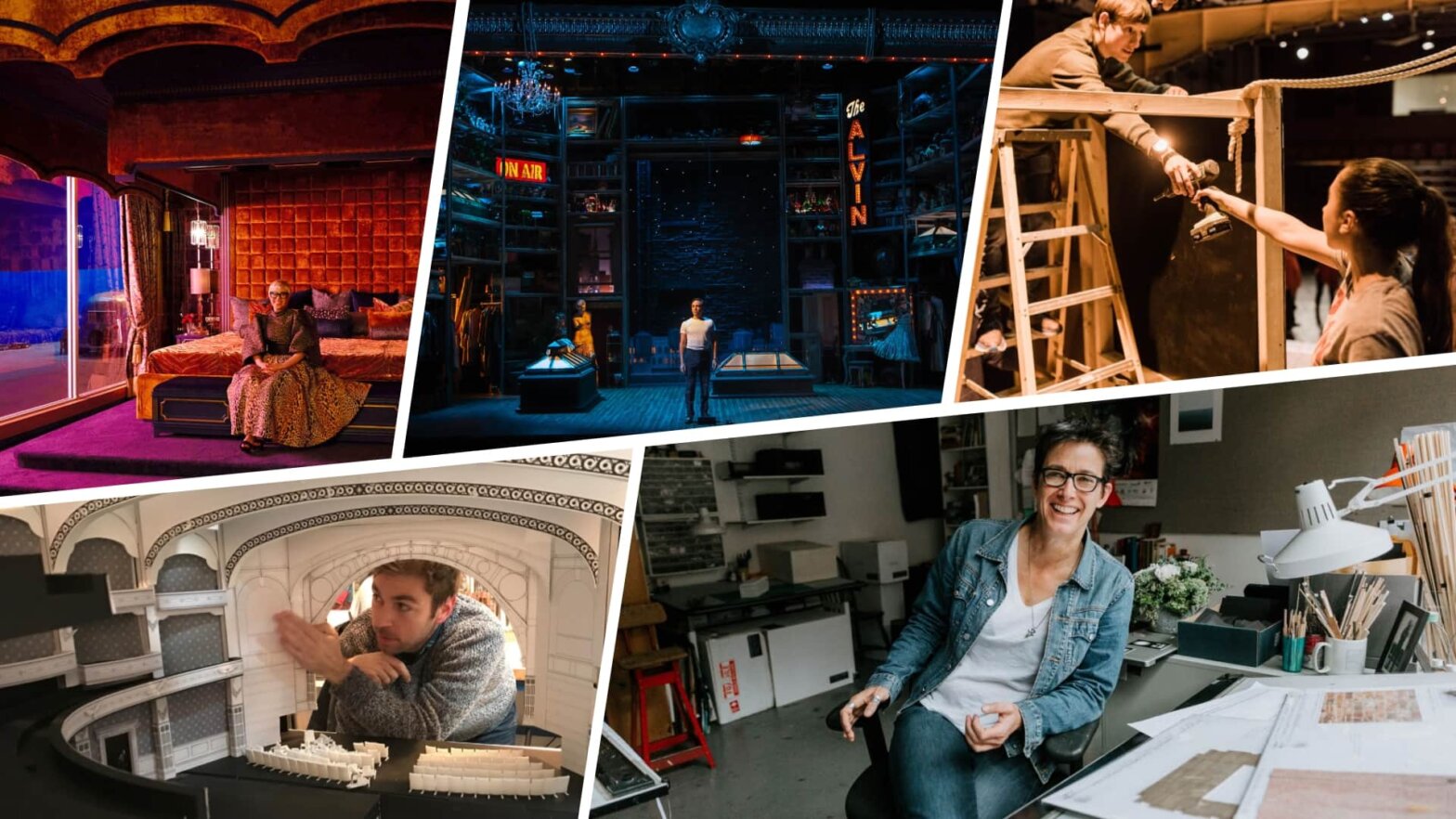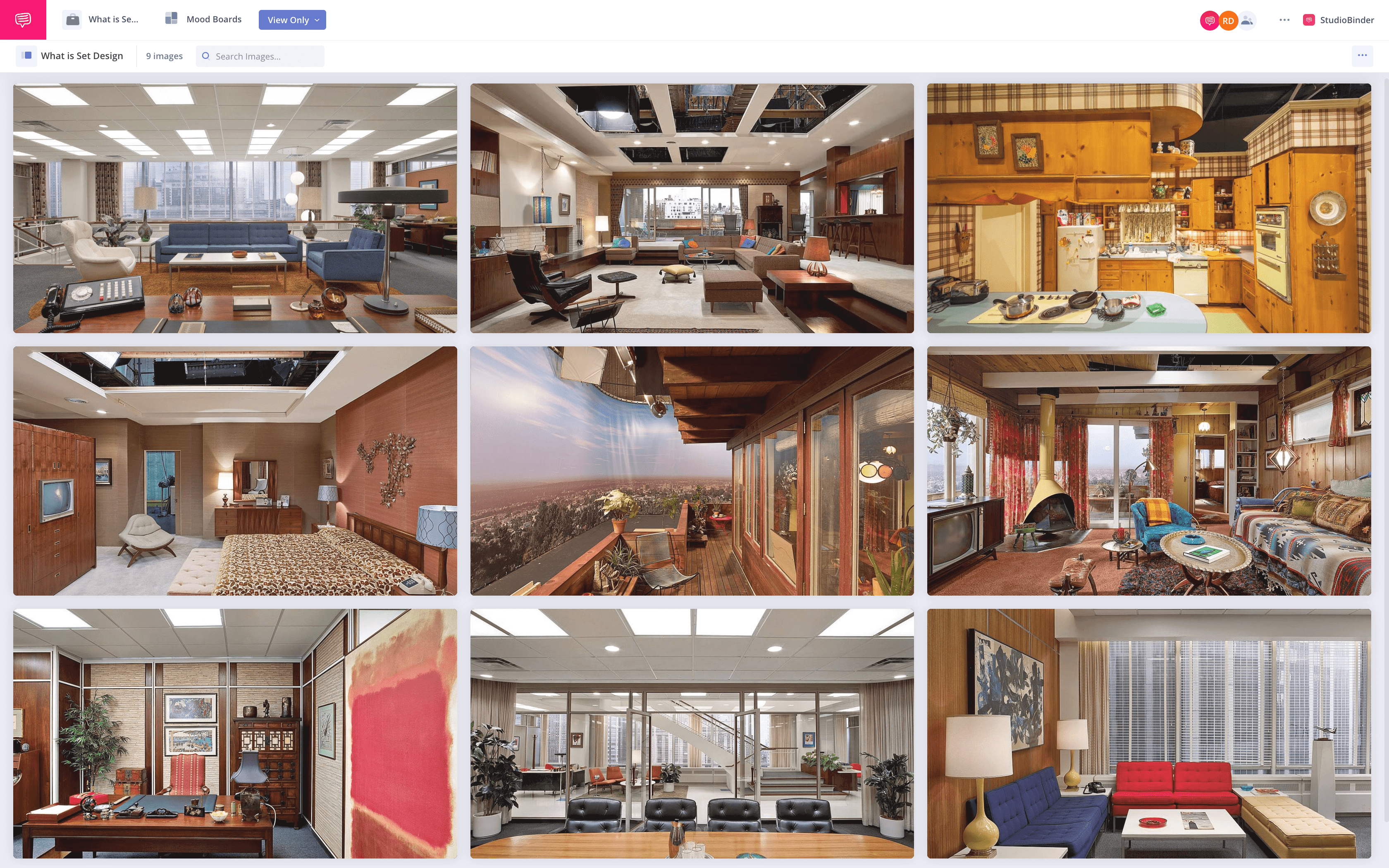T
he realm of theatre, film, and television is a kaleidoscope of various roles, each contributing to the final masterpiece that captivates audiences worldwide. Among these roles, the Set Designer holds a pivotal position, creating the physical surroundings in which the action will take place. But what is a Set Designer? In this article, we’ll take a look at the role and duties of the set designer and the steps one can take toward becoming one.
What is a Set Designer
First, let’s define set designer
The set designer’s work forms the backdrop of every scene, setting the tone and mood, and helping tell the story just as much as the characters themselves. Let’s start by taking a look at the set designer definition.
SET DESIGNER DEFINITION
What is a Set Designer?
A set designer is a creative professional tasked with conceptualizing, designing, and overseeing the construction of sets for theatrical, film, or television productions. They utilize their artistic abilities and technical skills to create environments that enhance the narrative and aesthetic of the production.
While similar to roles such as production designers or art directors, set designers focus specifically on the physical spaces where the action unfolds, distinguishing them in the realm of design roles within a production.
Set Designer Duties:
- Sketching set designs
- Collaborating with production teams
- Supervising set construction
- Ensuring design coherence from start to finish
Set Designer Job Description
What does a set designer do
A set designer's role is multifaceted, encompassing various tasks and responsibilities that span the lifecycle of a production.
Their responsibilities range from conceptual to practical; they're integral to every stage of a production. For a quick reference, check out this mood board we made in StudioBinder. Click the image to see the entire collection of sets.
Set Design Moodboard • See the entire collection
Conceptualizing and Sketching Preliminary Designs
The first duty of the set designer is to conceptualize the physical environment for the production based on the script, director's vision, and their own creative interpretation. This involves reading the script closely, understanding the narrative and emotional nuances, and translating them into sketches of the set.

Hugo • Set design example
Overseeing the Construction and Dressing of the Sets
Once designs are finalized, they oversee the construction of the set, ensuring that the design blueprint is accurately followed. They also manage the dressing of the set, which involves selecting and arranging props, furniture, and other elements to create the desired atmosphere and visual effect.
Collaborating with Directors and Other Departments
Set designers work closely with directors and production designers to understand their vision and ensure that the set aligns with it.
They also collaborate with other departments such as lighting, costume, and props to ensure a cohesive design. This collaboration is crucial in creating a unified visual storytelling experience.
In this video, you can get an inside look at the process of designer Martin Childs as he analyzes the sets of The Crown. Notice how everything comes back to story and the concept of the show. This comes from a solid understanding of narrative and collaboration with the director.'The Crown' Sets Explained by the Show's Set Designer
Participating in Every Step from Initial Concept to Final Walkthrough
From the initial concept to the final walkthrough before the cameras roll or the curtain rises, the set designer is involved in every step. They perform regular checks, make necessary adjustments, and ensure that the set is ready for action, reflecting their vision and serving the story effectively.
Getting the Job
How to become a set designer
Learning how to become a set designer involves acquiring the right educational background, developing necessary skills, and demonstrating certain qualities that are key for success in this role.
Necessary Educational Background and Skills
To become a set designer, most professionals start with a bachelor's degree in theater arts, production design, or other fine arts disciplines. Some even pursue master's degrees in these fields.
While formal education isn't a strict requirement, it provides a solid foundation of knowledge and skills. Study areas typically include art and design, with a focus on traditional disciplines like drawing and painting.
For set designer Shona Heath, her curiosity and skills in Surrealism have made her an iconic set designer in the world of photography, theatre and film.
The Surreal World of Set Designer Shona Heath
Important Qualities and Traits for Success
Set designers need both technical skills, such as design and drafting, and soft skills like communication and analytical abilities. Artistic vision is critical, but so is the ability to work collaboratively and solve practical problems.
An understanding of architecture, graphic design, or interior design can also be beneficial. In the video below, we analyze how set design plays a massive role in the production design of a film.
Production Design — Filmmaking Techniques for Directors: Ep2
Steps to Start a Career as a Set Designer
Becoming a set designer often starts with obtaining an undergraduate degree, followed by gaining hands-on experience. Internships, artist roles, or other design-related jobs can provide valuable experience. It typically takes 2-4 years of experience in related fields before one can step into a set designer role.
Opportunities for Training and Professional Development
Continuous learning and professional development are crucial in this field. Aspiring set designers can seek additional training through workshops, industry events, and advanced degrees.
Staying updated with the latest trends and technological advancements in set design is also important for career growth.
Related Posts
What is a Set Designer Paid?
Set designer salary
The average set designer salary varies depending on several factors, such as experience, location, and the type of production they are working on.
Average Salary Range for a Set Designer
The average salary for this position in the United States is approximately $54,869 according to Salary.com. However, this can range from around $44,983 to $66,390 depending on various factors. In some cases, set designers have been known to earn as much as $94,000 annually.
Factors Influencing Salary
Experience plays a significant role in determining the salary. Those with more years in the industry generally command higher wages. Location also affects salary, with set designers in larger cities often earning more due to higher costs of living and greater demand for their skills.
The type of production (e.g., theatre, film, television) can also impact earnings.
Comparison with Salaries of Related Professions
When compared to other professions within the same field, set designers' salaries are generally competitive. For example, the average salary for a theatrical designer of sets working for performing arts companies is around $45,710 (Chron).
However, it's important to note that salaries can vary greatly depending on the specifics of the role, the size of the production, and other similar factors.
Finding JOBS
Find set designer jobs
The journey to find a job as a set designer can be exciting and challenging. Here's a guide on how to navigate the job market, including networking tips, information about entry-level jobs, and online resources.
Networking in the Field
Networking is crucial in the world of set design. Attending industry events, joining professional associations like the United States Institute for Theatre Technology (USITT), and connecting with fellow professionals on social media platforms can help you establish valuable connections.
Volunteering for local theater productions or some of the best film festivals can also offer opportunities to meet industry insiders and showcase your skills.
Entry-Level Jobs
Starting as an assistant to an established designer or working in a theater's art department are common entry points into this field. These positions allow you to gain practical experience, learn from seasoned professionals, and build a portfolio. Internships at production companies or theaters can also provide hands-on experience and potential job opportunities.
Online Resources for Finding Set Designer Jobs
There are several online platforms that list set designer jobs. Websites like Indeed, Glassdoor, and LinkedIn regularly post job listings from various industries. For more industry-specific job boards, check out ArtSearch by Theatre Communications Group or ProductionHub.
Portfolio sites like Behance and Dribbble also allow you to showcase your work and connect with potential employers. Freelance platforms such as Upwork and Fiverr might offer opportunities to take on independent projects and build your reputation in the field.
Remember, persistence and creativity are key in your job search journey. Keep building your skills, stay connected with your network, and keep an eye on the job market.
A set designer’s role combines artistic vision with practical skills, designing and overseeing the construction of sets, as well as collaborating closely with directors and other departments.
From conceptualizing designs based on the script and director's vision, to ensuring the final set serves the story effectively, a set designer plays a critical role in shaping the visual narrative of a production.
Up NexT
Discover more filmmaking roles
Becoming a set designer is a rewarding career path that combines creativity and practical skills, offering diverse opportunities in various entertainment industries. To continue through our series of the various filmmaking roles and positions, you can explore similar jobs like Production Designer, Art Director, or Prop Master. Or you can jump over to our Film Crew Index to browse the entire range of filmmaking roles. Understanding what everyone’s role on a film set is will help make you a better overall filmmaker and a more efficient crew member.
Up Next: Explore more crew positions →
Showcase your vision with elegant shot lists and storyboards.
Create robust and customizable shot lists. Upload images to make storyboards and slideshows.

